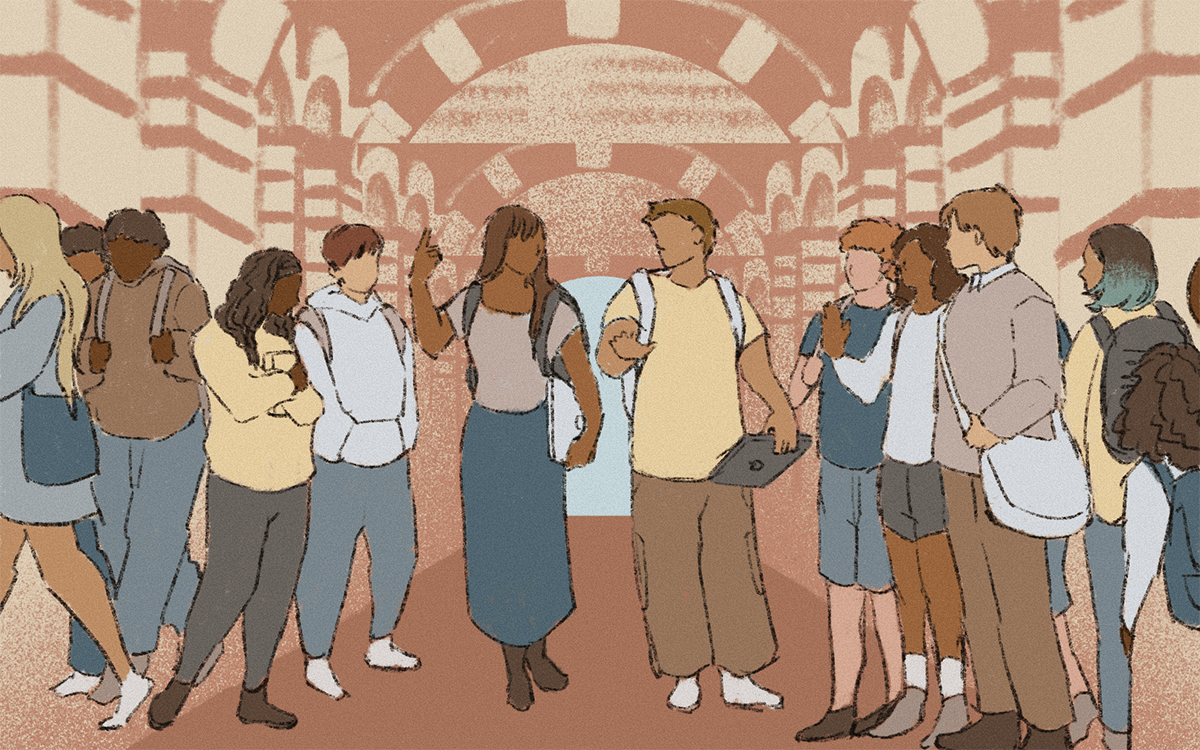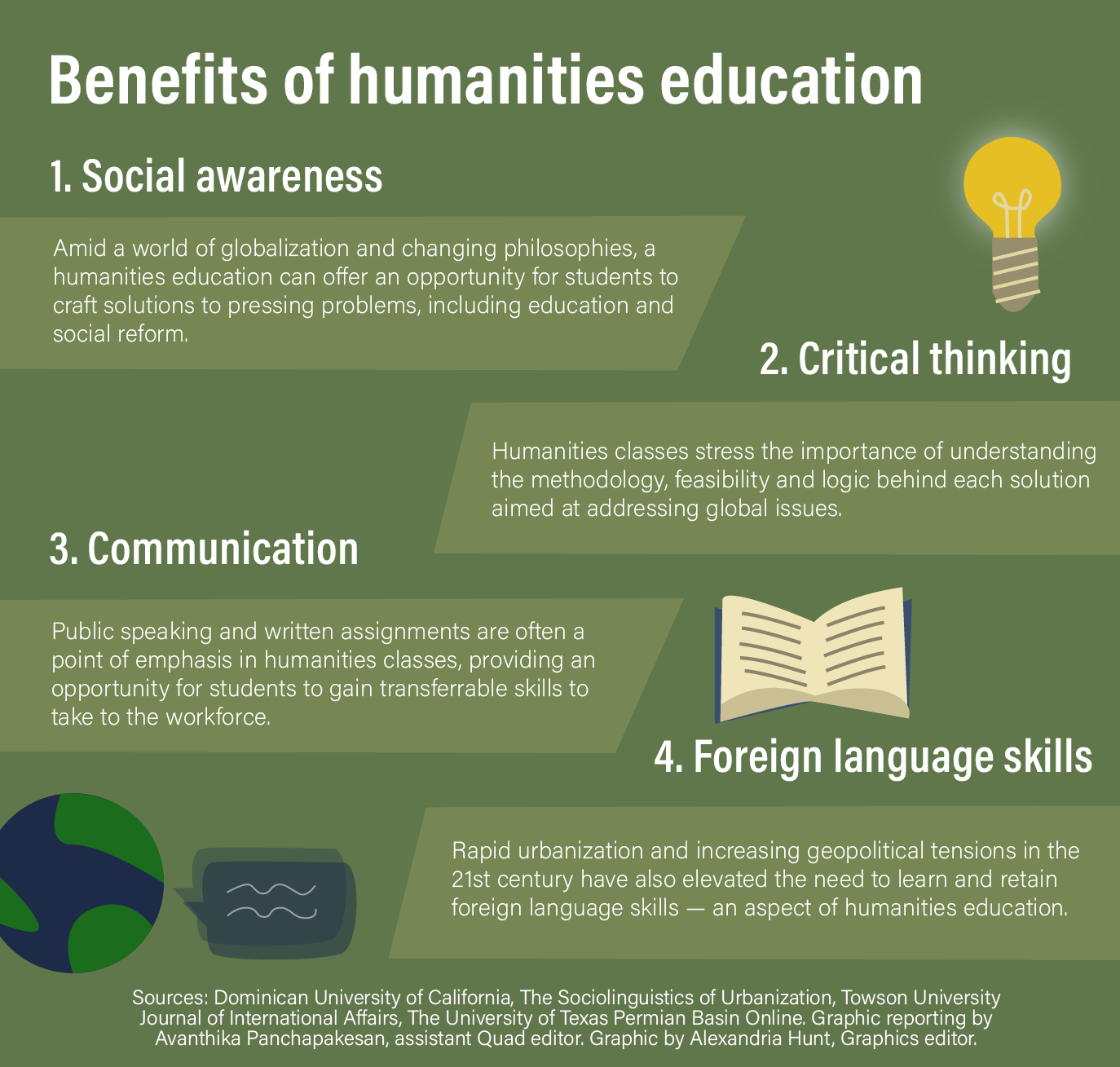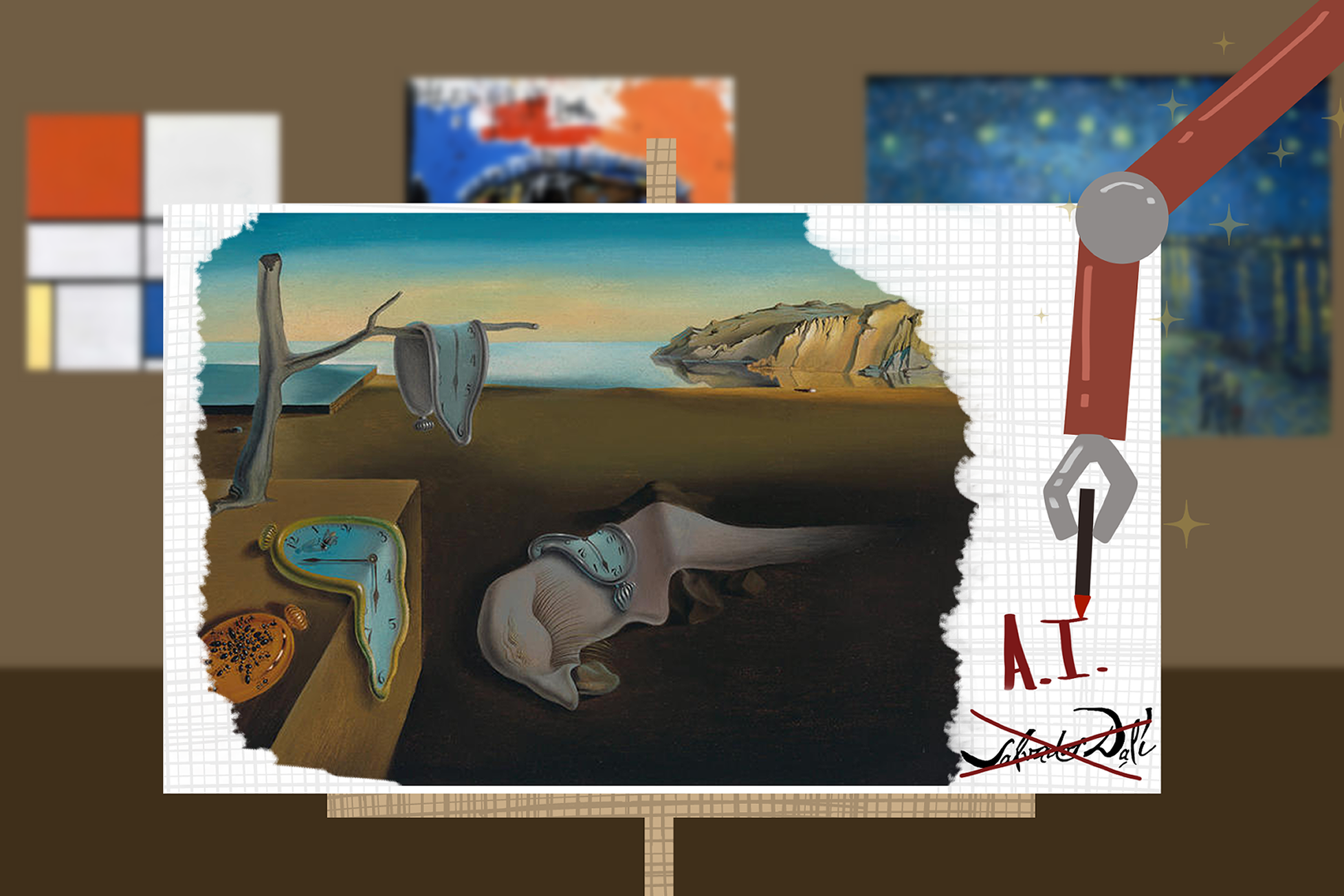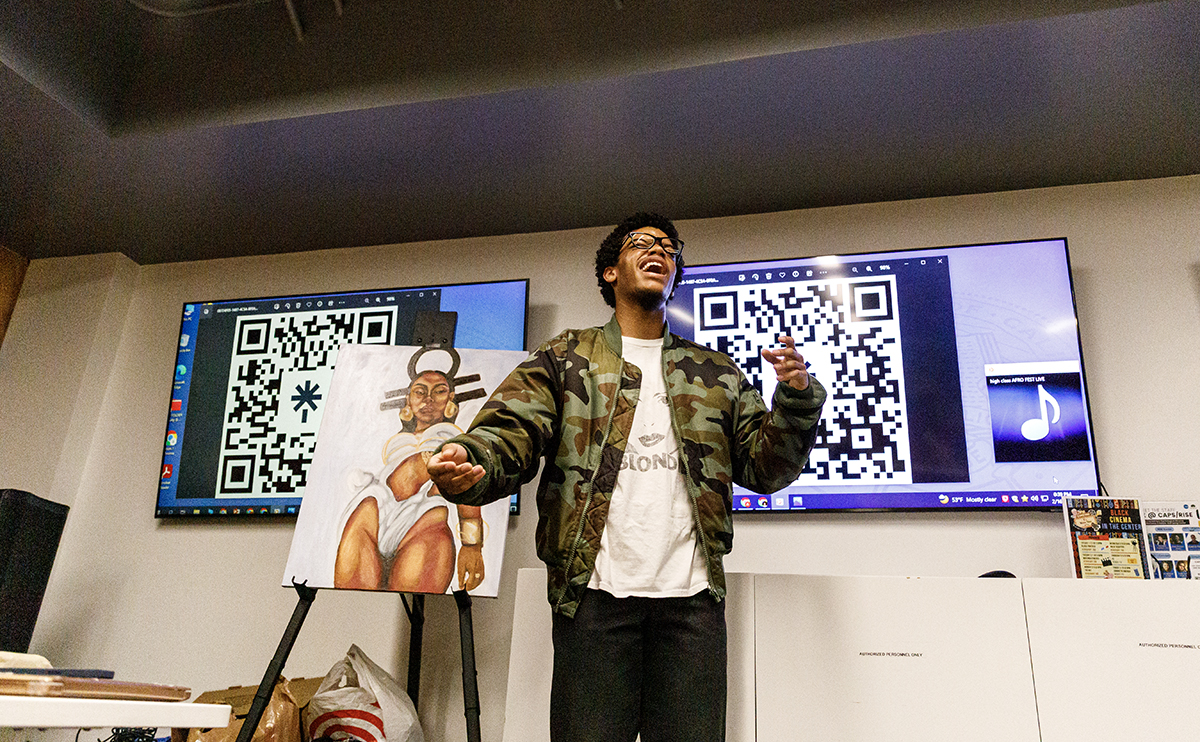The Future: Need for critical thinking, creativity makes humanities studies essential

(Isabella Lee/Illustrations director)
By Jocilynn Colombo
April 23, 2023 8:55 p.m.
This post was updated April 25 at 11:18 a.m.
What is the point of a humanities degree?
Around the nation, prospective and current college students question if paying four years of tuition is worth the supposed “useless” degree.
Out of all degrees earned at UCLA, humanities have historically constituted a small portion, and the number continues to drop. Students are instead gravitating toward business, engineering and health-related fields.
While these other fields are unequivocally worthwhile and essential, the humanities are also valuable pursuits – perhaps far more valuable than many realize.
Although it may seem that the low rate of students pursuing humanities fields stems from a lack of interest, it is perhaps an unfortunate result of the prolific amount of discouragement stemming from media and conversations with peers, friends and family. Because of widespread, but not necessarily accurate, concerns about future career prospects, students seem less eager to pursue that “useless” degree.
But the negative discussions surrounding humanities degrees often fail to consider the whole truth, and they disregard various skills students can obtain that prepare them for life and work after college. These skills are highly valuable, as they offer students multiple ways to look at the world and address major societal issues such as homelessness, racial and gender inequality, threats to sustainability, and more.
“I think we’re trying to discover, in an increasingly complex media ecosystem, how to communicate with clarity and criticality,” said Daniel Snelson, an assistant English professor who majored in comparative literature. “I think the humanities are more valuable than ever to be able to address, assess and respond to the technological currents that are sweeping us all into the present.”
Snelson added that, at the time, comparative literature was his only option that he believed could fully encompass his interest in analyzing disparate forms of media through an interdisciplinary lens.
Creativity and innovation are boundless concepts, and the humanities offer students a plethora of ways to express themselves. Oftentimes, the need for this kind of creativity is greatly undervalued in comparison to the pursuit of other fields.
“We create spaces to relate to each other and to express our feelings,” said Holland Fox, a second-year art and art history student. “Some people will build airplanes and some people will curate exhibitions. If you just have one or the other, obviously it’s going to be a sad community to live in.”
Not only do the humanities offer spaces for students to express themselves and foster whatever they are passionate about, they also aid students in developing valuable skills that they will carry with them into any career they choose after college.
Michael Cohen, an associate English professor, said there are many beneficial skills that can be gained through the pursuit of a humanities degree.
“There are no formulas in the humanities that can be applied to solve a problem,” Cohen said. “It requires students to develop the strategies and the skills to navigate challenging and ambiguous and uncertain situations.”
This lack of systematic blueprints encourages students to think differently than they would have had they been educated in other fields.
“The humanities prepares you to have a critical mindset, a way to interrogate the culture around you, and also (provides) a set of tools to communicate clearly and effectively,” Snelson said. “At the end of the day, I think this is what every employer is looking for.”
Effective communication, critical thinking and problem-solving skills are compelling traits that appear attractive to all kinds of different employers, even in careers outside of humanities.
The critical lenses, imagination and empathy learned through the process of getting a humanities degree also prepare students for leadership roles. This versatility, matched with the rigorous studies of the past that are common requirements in these fields, gives students a strong social conscience and the tools they need to improve the world.
While all of this is valuable and beneficial, there are concerns about how well humanities degrees will age in our increasingly digital lives.
With the rapid rise of technology, such as AIs that can generate written responses or art, a fear arises that the need for human creativity is diminishing.
However, Cohen said this fear feels misplaced. While AI could read millions of novels and with that information, replicate certain patterns and rules found in human-made novels, Cohen said in this sense, AI is essentially a replication of human creativity – not a complete replacement of it.
“Once painting was no longer burdened with the necessity of representation, it was free to explore its own materiality,” Snelson said. “It was free to explore a wider range of approaches to what it is that painting can do that photography can’t.”
Past inventions have caused anxiety surrounding the viability of certain careers. However, sometimes these very inventions have propelled these threatened careers forward, opening them up to possibilities of expressing themselves in new ways.
“It will enable us to see what it is that we can do as human writers or image makers or sound makers or filmmakers that AI still can’t do,” Snelson said.
Despite decreasing numbers of students in humanities fields, the need for them is not fading away. While many STEM-based fields are essential for sustaining life, the creativity found within humanities is largely part of what makes life worthwhile.






